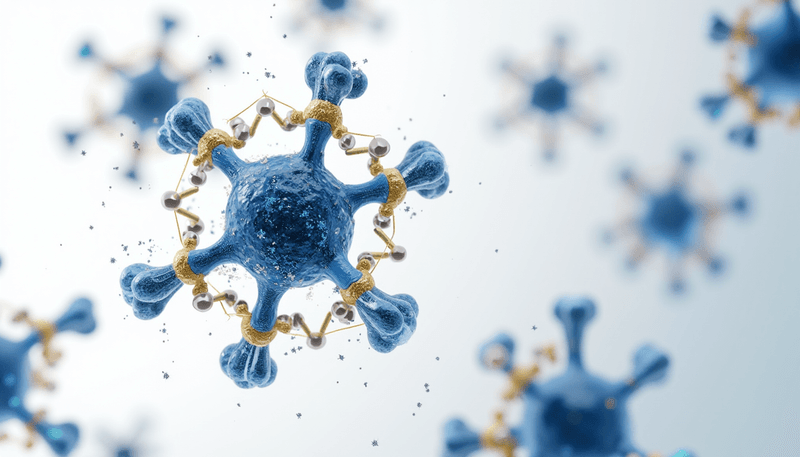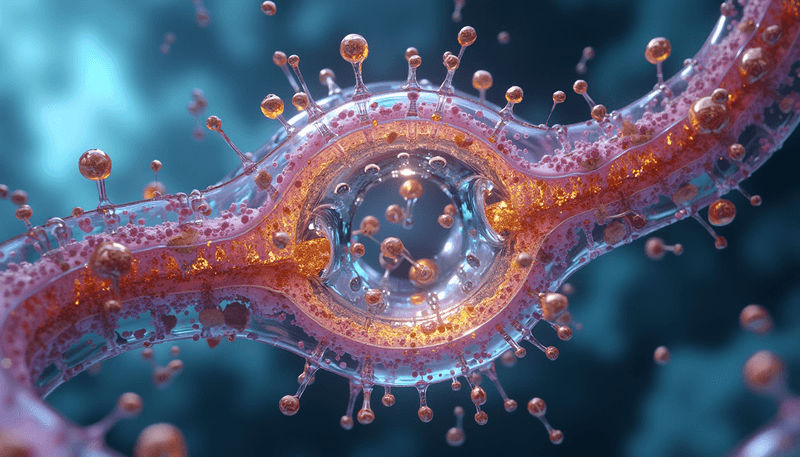Fish Oil Benefits During Cancer Treatment

When Sarah Chen, a 45-year-old breast cancer survivor, started her chemotherapy journey, she never imagined that something as simple as fish oil supplements could make a meaningful difference in her treatment experience. A groundbreaking study published in Scientific Reports reveals promising evidence that combining fish oil with evening primrose oil can reduce inflammation and improve outcomes during chemotherapy.
The Power of Omega-3s in Cancer Treatment
The research team discovered that patients who took a combination of fish oil and evening primrose oil supplements showed significantly lower levels of interleukin-6 (IL-6), a key marker of inflammation. Think of inflammation as a fire burning in your body - while some inflammation is necessary for healing, too much can harm healthy tissues and potentially interfere with treatment effectiveness.
"Could reducing inflammation through natural supplements be the missing piece in making chemotherapy more tolerable for cancer patients?"
The study participants who took the supplements received:
- 2 fish oil capsules daily (containing EPA and DHA)
- 3 evening primrose oil capsules daily (containing GLA)
- Total daily intake: 1000mg EPA+DHA and 351mg GLA
Supporting Cell Membrane Health
One fascinating discovery was how these supplements affected cell membranes. The DHA from fish oil gets incorporated into all cell membranes, including those of tumor tissues, making them more flexible and permeable to chemotherapy drugs. It's like upgrading the doors and windows of your house - better entry points mean better delivery of what needs to get inside.
The research showed that this enhanced permeability:
- Improved chemotherapy effectiveness
- Did not increase toxicity to healthy cells
- Created better treatment outcomes
"Have you ever wondered why some patients respond better to chemotherapy than others? Cell membrane health might be part of the answer."
The Anti-inflammatory Symphony
The combination of fish oil and evening primrose oil creates what I like to call an "anti-inflammatory symphony." Each component plays its unique role:
-
EPA (from fish oil):
- Reduces inflammatory markers
- Supports immune function
- Helps maintain healthy body weight during treatment
-
GLA (from evening primrose oil):
- Exhibits cytotoxic effects on tumor cells
- Inhibits cancer cell growth
- Promotes healthy cell death (apoptosis)
This combination showed better results than either supplement alone, suggesting a synergistic effect.
The study findings translate into practical recommendations for anyone undergoing cancer treatment or looking to support a loved one through their journey:
-
Discuss supplementation with your healthcare team
- Timing matters: Start supplements when beginning treatment
- Get proper dosing guidelines
- Monitor your response
-
Choose high-quality supplements
- Look for pharmaceutical-grade products
- Check for third-party testing
- Verify EPA/DHA content in fish oil
-
Maintain consistency
- Take supplements daily
- Keep track of any changes in symptoms
- Document your experience
"What small steps could you take today to incorporate these findings into your or your loved one's treatment plan?"
In conclusion, this research opens new possibilities for supporting cancer treatment through natural supplements. The evidence suggests that combining fish oil and evening primrose oil can create a more favorable environment for treatment success while potentially reducing some side effects of chemotherapy.
Your next step? Schedule a conversation with your healthcare provider about incorporating these supplements into your treatment plan. Every journey toward healing is unique, but having evidence-based tools to support that journey can make a meaningful difference.
Take action: Start a conversation with your healthcare provider this week about incorporating omega-3 supplements into your treatment plan. Your future self will thank you.

Amelia Grace Okonkwo
Amelia Grace Okonkwo is a freelance health writer and author with over 15 years of experience in health journalism, specializing in women's health and autoimmune disorders. With a background in biology and a Master’s in Public Health from Johns Hopkins, she combines scientific accuracy with a storytelling approach to make health information accessible and empowering. Amelia is known for her bestselling book, "The Skin We're In," which explores autoimmune disorders and their impact. She is passionate about delivering practical health insights for women, addressing topics from midlife wellness to mental health.







